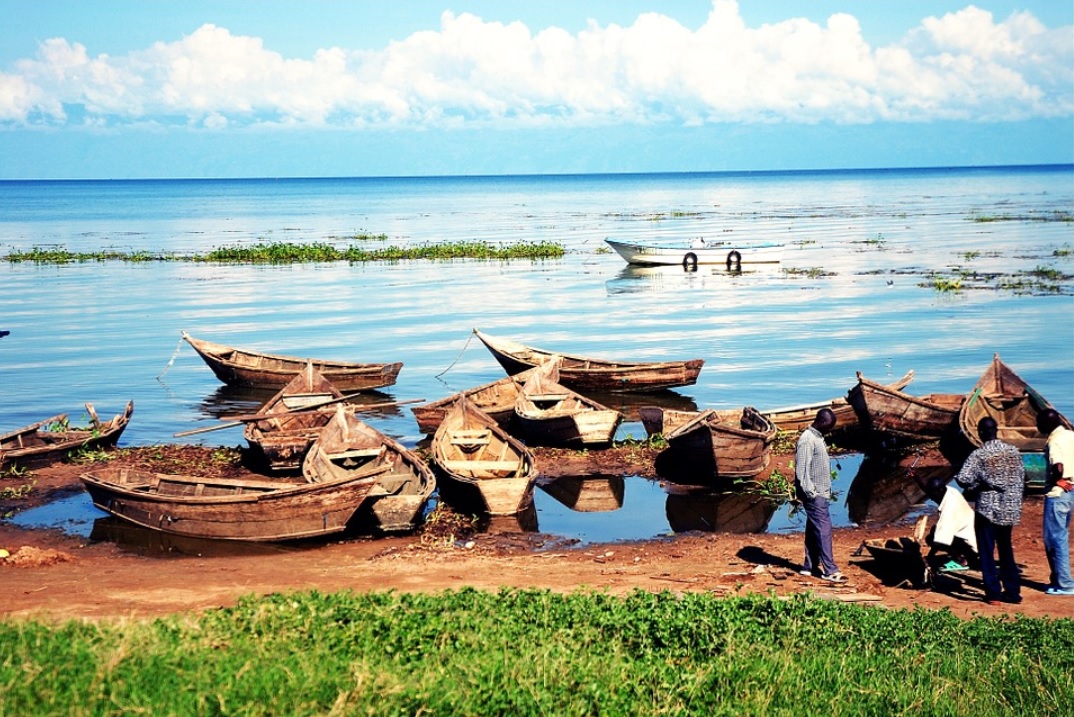Lake Victoria – Why Africa’s largest lake looks ugly
The loads of herbicides, insecticides and acaricides, which should never be present in drinking water, are still found in Lake Victoria including the pesticides that were banned in 2001.

One of the African Great Lakes, Lake Victoria is currently in danger. One has to travel the length and breadth of Lake Victoria to just have a fathomable glimpse of the intensity of its pollution. Many mammal species live in the Lake Victoria region and some of these are closely associated with the lake itself and the nearby wetlands.
Current plights of Lake Victoria
The pollution in Lake Victoria is mainly due to discharge of raw sewage into the lake, dumping of domestic and industrial waste, and fertiliser and chemicals from farms. Lake Victoria, which is Africa’s largest lake by area, looks severely ugly with an astonishing glimpse of emerging debris of plastics and other non-biodegradable waste back onto the nearby banks.
The constant increasing pollution is also a big threat to the fishermen who are already aware that over 12 fish species have disappeared due to severe poisoning of water. There is also a fight between Kenyan fishermen and Ugandan forces as they fight for their survival by fishing in their waters. The lethal combination of overfishing and pollution threatens not only the fish stocks, but also the fragile environmental and economic ecosystem supported by the world’s 9th largest continental lake.
Lake Victoria is divided among three countries – Tanzania (49 percent), Uganda (45 percent) and Kenya (6 percent). The situation of Lake Victoria in Uganda is no different. Although the deployment of military at some places by the President Yoweri Museveni has slowed down the pollution, but the severe face of pollution can be seen at Nakivubo channel, very close to the capital city, Kampala. On the other hand, poor agricultural practices in surrounding highland areas are also responsible for the release of chemical sediments from fertilizers, pesticides and herbicides.
The loads of herbicides, insecticides and acaricides, which should never be present in drinking water, are still found in the waters of the world’s largest tropical lake (Lake Victoria) including the pesticides that were banned in 2001. Pollution in Lake Victoria has even been linked with the prevalence of diseases like cancer and immunosuppression by various researches.
Threats to inland water ecosystems include water pollution from excess nutrients, domestic and industrial organic loads, pesticides and heavy metals, and the impacts of invasive species. These pressures are resulting in biodiversity degradation in freshwater ecosystems, especially in East Africa’s Lake Victoria, the Mediterranean and Atlantic coasts of Morocco, and many major African rivers.
Blame game continues with rare positive approach
Even during February 2020, the Kisumu Water and Sewerage Company (Kiwasco) that runs the Kisat treatment plant was in denial that it was polluting the lake. But a recent investigation performed by ‘The Nation’ showed how the water company is unable the clean the toxic waste it receives daily and pumping the poison into Lake Victoria. Kiwasco is pumping a minimum seven dangerous chemicals into the lake, which can cause typical diseases from cancer to respiratory system failure.
Recently, a clean-up process at large scale in cleaning Lake Victoria has been launched in Kisumu county in Kenya. This ten-day multi-agency exercise includes waste collection and intends to tackle its pollution. It has brought together the National Environment and Management Authority, the county government, Kenya Red Cross, the Lake Basin Development Authority (LBDA), Kisumu Water Sewerage Company and Plan International. The combined efforts are expected to restore the lake and water catchment areas to their former state.
On the other hand, similar kind of programme would be rolled out in neighbouring Siaya, Home Bay and Migori counties. Apart from cleansing activities, the team will also focus on planting trees along the lakeshore and along River Kisat.
However, the Ugandan Ministry of Water and Environment recently reported in the presence of journalists in Kampala that the claims of Lake Victoria’s pollution with huge traces of heavy metals, pesticides and other chemicals are not true. The officials led by the permanent secretary, Alfred Okot Okidi said while pollution is a worldwide challenge, the report about Lake Victoria is an exaggeration. According to him, the research findings by The
Nation team in association with a group from the University of Nairobi were not fair and only intended at portraying that the government of Uganda is incompetent (in protecting Lake Victoria). He reminded that the current government is already doing several things in protecting Lake Victoria and other water bodies across the country.
Things need to be done
The governments together need to come out with new approaches and action plans including valuing, conserving, restoring Lake Victoria and other water bodies and wisely utilizing biodiversity and ecosystems. There should be a major focus on mainstream biodiversity across government and society. Those approaches will facilitate the achievement of targets of Sustainable Development Goals (mainly SDG 14 – Conserve and sustainably use the oceans, seas and marine resources for sustainable development). Further efforts are required to ensure that these approaches are consolidated and promoted.
(Disclaimer: The opinions expressed are the personal views of the author. The facts and opinions appearing in the article do not reflect the views of Devdiscourse and Devdiscourse does not claim any responsibility for the same.)
Also Read: Will cannabis legalization in Malawi have positive impact on economy?
- READ MORE ON:
- Victoria
- Lake Victoria
- Africa
- FIRST PUBLISHED IN:
- Devdiscourse










